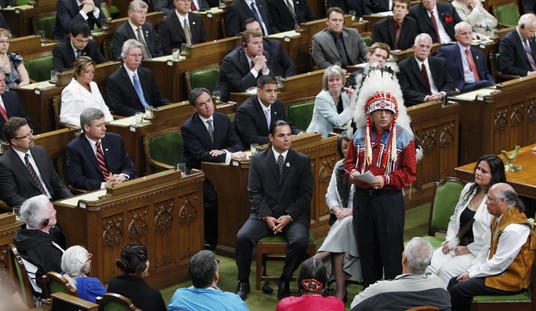Nothing infuriates me more these days than when I hear a pundit on television talk about how a long Republican presidential primary, possibly even to June, will make the candidates stronger so that the eventual winner will be better primed to take on President Obama.
The example always given is 2008 when Obama battled Hillary until June. The reasoning is that their lengthy battle enhanced and refined their collective campaign skills so that one of them was able to be elected president in spite of the vicious battle.
Yes, that was true in 2008 but there is one huge factor, captured in one word, that renders those presidential primary circumstances completely different from what the GOP faces in 2012. That word is incumbent and incumbent presidents have all the advantages.
So instead of Republicans lulling themselves into a false sense of security with the “we are just like they were in 2008 and it turned out well” attitude, Republicans should look to 2004 for a more realistic assessment of what we will be up against should this primary drag on. Unfortunately the historical comparison is definitely not in our favor.
Consider 2004, when President George W. Bush was running for re-election. In early March 2004, his presidential performance rating was 49% approval with a 48% disapproval.
Then, on March 3, 2004, Massachusetts Senator John Kerry became the presumptive Democrat presidential nominee after a decisive Super Tuesday victory, forcing North Carolina Senator John Edwards to drop out of the race.
Here is a transcript of what Gwen Ifill of PBS said that evening about Kerry’s victory.
Kerry’s near-clean Super Tuesday sweep made him the Democrats’ presumptive nominee and set up an eight-month challenge to President George W. Bush. He spent last night and today rallying his troops and preparing for the campaign’s next phase.
It is instructive to note here that John Kerry had eight full months of preparation time to run against a well-funded incumbent whose approval rating only stood in the high forties.
From this same transcript it, is also worth revisiting what John Kerry said on that victorious evening in early March 2004:
Tonight, the message could not be clearer all across our country — Change is coming to America. (Cheers and applause) Before us lie long months of effort and of challenge, and we understand that. We have no illusions about the Republican attack machine and what our opponents have done in the past and what they may try to do in the future. But I know that together we are equal to this task. I am a fighter! (Cheers and applause)
Yes, John Kerry was a fighter, but fighting against even a weak incumbent with an eight month start proved to be too much a fight for Kerry the Vietnam veteran.
Let’s shift back to 2012, where many Republican leaders and even more primary voters are deluding themselves into thinking a long drawn-out primary battle is good for the eventual nominee’s prospects against President Obama.
Obama, like President Bush in 2004, will be well-funded, super organized, and currently has virtually the same approval rating (48.9%) as Bush had when Kerry became the presumptive nominee in March of 2004.
But John Kerry, with a long lead time and a united party behind him, still lost to Bush in a close election. (The last Gallup poll before the election had Bush at 48% approval. However, just after the election he jumped to 53% approval.)
Now, in 2012, facing a polarizing incumbent, the GOP itself is dangerously divided, an issue that John Kerry never had to deal with.
The GOP candidates, as a result of inflicting damage upon each other with superPAC help, not even a factor in 2008, are becoming weaker by the day while Obama is gaining strength. The Real Clear Politics average has Obama defeating Romney by 5.7%, a huge increase over a few months ago when Obama and Romney were virtually tied. (Santorum runs even worse, losing to Obama by 8%.)
To make matters worse, the new Republican nominating rules for 2012 (with the objective of making the primary contest more competitive by changing the way delegates are allocated) practically ensures that the primary fight will be dragged out until summer.
So now, every day that the GOP does not have a strong presumptive nominee is one less day to prepare against a president who flies around on Air Force One campaigning non-stop while taxpayers foot the bill.
Republicans need to think seriously about John Kerry’s eight months of prep time in 2004 as the example to be emulated, rather than being falsely comforted by the June 2008 battle of Obama vs. Hillary.
Ideally, if, starting in March, Mitt Romney were to become the official presumed nominee, and had eight months to gather momentum — it would be just enough time to help unite the party, improve his wounded image, and gear up for the general election.
Then, with such a timetable, Romney would have a decent shot at defeating our incumbent president — for I strongly believe he is the only GOP candidate this year who is capable of attracting enough independent and moderate voters to garner the 270 electoral votes needed to win the White House.
But such a timetable at this stage of the primary game show is pure fantasy.
Meanwhile, it’s back to the front lines of the primary battle with Republican base voters who correctly say that Romney will lose against Obama. Yes, if he wins the nomination, and then has four less months than John Kerry had in 2004 to prepare against an incumbent, Romney will more than likely lose the general election and it will be the Republican base that defeated him.









Join the conversation as a VIP Member